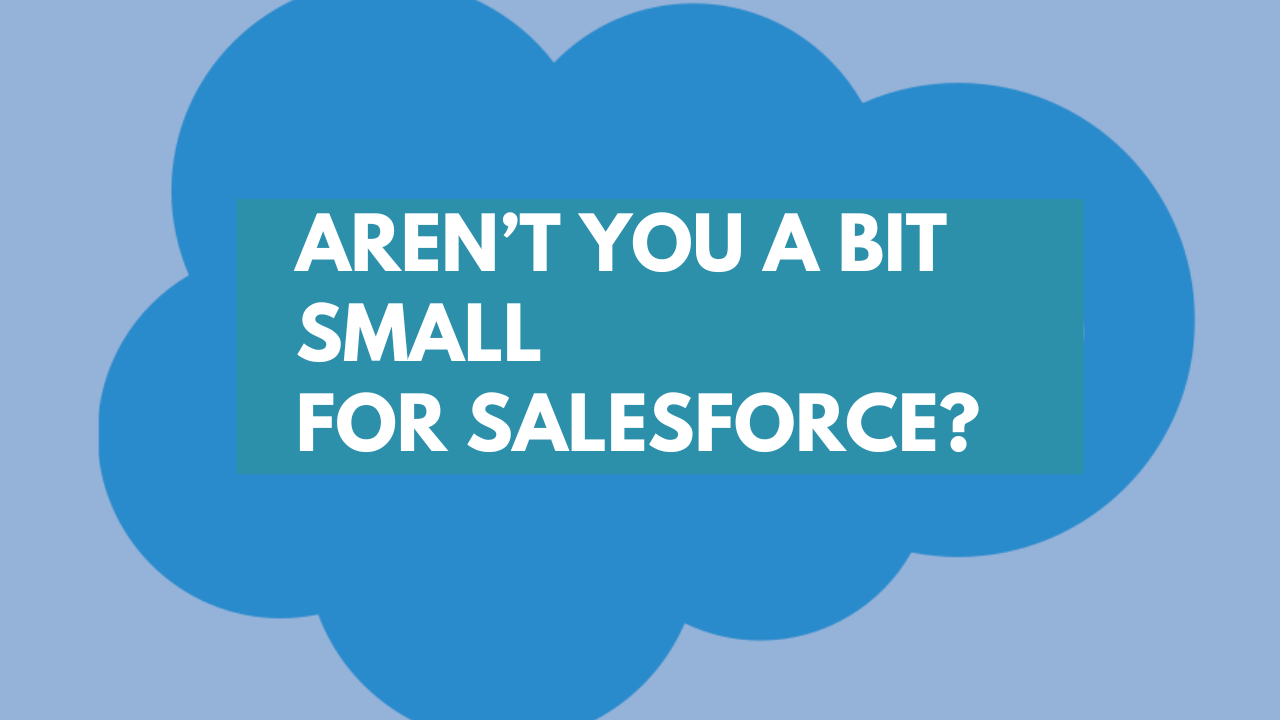Choose the right CRM for your SME and you’ll benefit from it even more than your bigger rivals do.
Recently, I was talking with a company director friend of mine and mentioned that I had been occupied with onboarding Salesforce into the firm where I work. He was surprised that I had brought in such a well-known and large package for a mid-sized SME. The intimation was; isn’t that a bit over the top?
The answer is no.
If you’re a small firm, you can’t afford not to have a CRM. There’s a good chance that an SME won’t have a separate sales and marketing department or even a member of staff who works on either role full-time. If this is the case then just a handful of lead enquires becomes very unwieldy. It can be easy to lose track of who to phone back, who to email a follow-up message to and who needs a tender. The right CRM will help a small firm to adopt processes and use data in the way that much bigger companies do. And that will help SME multi-taskers who don’t have the luxury to focus exclusively on lead generation, sales funnels or marketing campaigns. The smaller your company, the more important each sale becomes, surely? So if you’re responsible for the marketing and/or sales in a similar-sized organisation and are currently winging it, then my advice is to stop listing leads on a spreadsheet, Outlook or in your memory and start shopping for a CRM.
I spent the summer comparing SaaS providers both large and small. I free-trialed each one when when I could. I would upload some live data into the software and spend a couple of weeks bench testing each CRM’s basic package. I wrote a brief report on each CRM then screen-grabbed video of myself going through each of the software‘s basic processes so I could remember how that software worked and could also show colleagues what it looked like for their feedback. This approach takes time but eventually I chose Salesforce because it was easy to add data that was specific to my industry, it saved changes and loaded pages fast and it was easy to produce customised reports. Those were pretty much the main criteria I was looking at with every software I tested.
Since adopting a CRM, I’ve been able to better get to grips with the pros and cons of our sales processes and be able to report on the underlying trends to help us focus on attracting our idea client. If you’re a fellow marketer at the same stage of shopping for software as I was last year, I have some recommendations:
Test page/data loading times
It’s a bugbear of mine to see data entry being slowed to a crawl by inadequate page loading speeds. I’m aware of how nerdy that sounds. So manually add data during your CRM free trial to test the system. If the CRM doesn’t load fast but you still like software for other reasons, then test to see if you can work well enough jumping between multiple open tabs of your browser. It’s better than nothing.
Customise the CRM to your industry
Can you rename fields, quickly add fields, or change around layouts on Contact, Opportunity or Lead pages?
Run basic reports and try customising reports
When trialing each CRM, design three or four reports you think will help your business then create and run them during your free trial. Can they be printed easily for presenting to managers or delivered automatically into your inbox?
Try pushing the boundaries on the big four categories of data: leads, contacts, accounts, companies
Each CRM provider treats these categories of potential customer very differently. This is especially true when it comes to producing reports; one CRM may not attach monetary value to a lead, or another may not link two lead names to an account. Find out the limits on this and make sure that your data can be connected in the way you need it to be.
